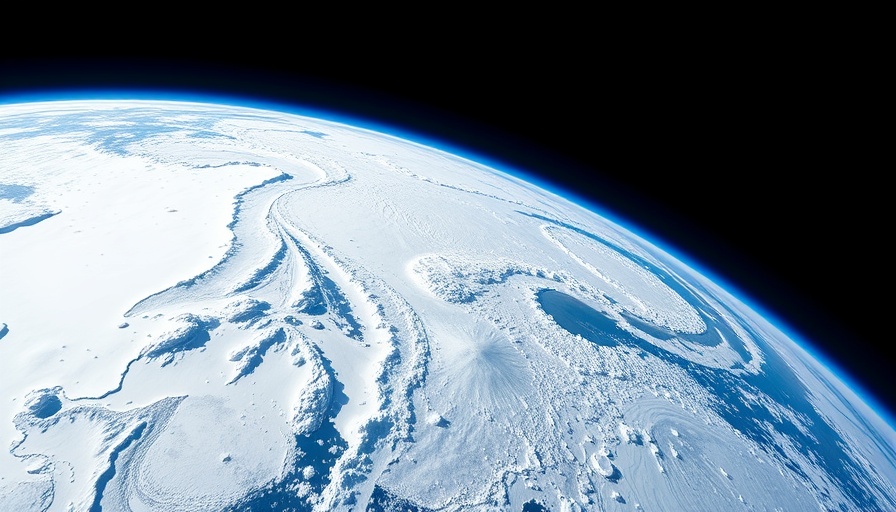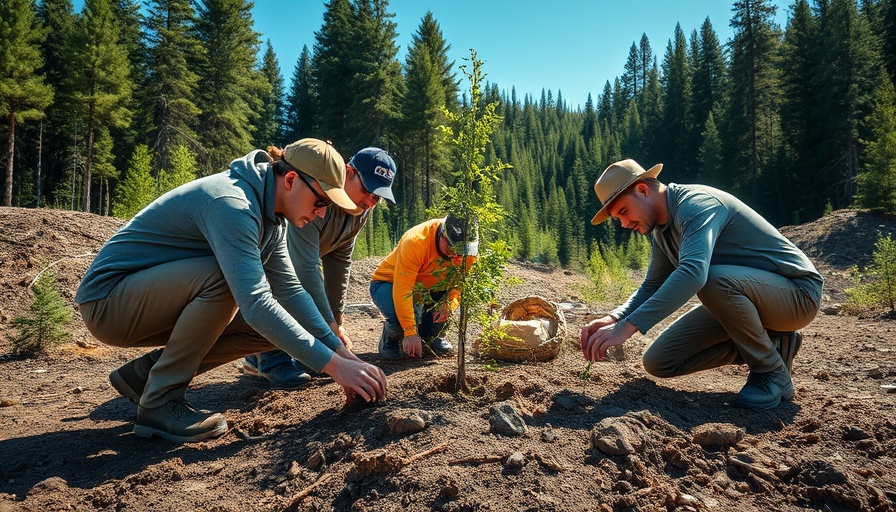
Understanding the Record Low of Arctic Sea Ice in 2025
In a startling revelation, scientists have confirmed that Arctic sea ice reached its lowest maximum extent in recorded history on March 22, 2025. With just 5.53 million square miles of ice, this figure underscores the ongoing climate crisis and its direct impacts on our environment. Walt Meier, a senior research scientist at the National Snow and Ice Data Center (NSIDC), highlights that this year’s peak ice coverage falls well beneath the previous record low set in 2017. The key takeaway? The most recent trends signal a concerning long-term loss of ice in Arctic regions, further exacerbated by rising temperatures.
The Broader Implications of Ice Loss
The implications of diminished Arctic sea ice extend far beyond the polar regions, influencing global weather patterns. As temperatures rise, the jet stream weakens, leading to erratic weather phenomena that can affect climates across the globe. Julienne Stroeve, a prominent ice scientist, emphasizes that the warming atmosphere above the Arctic Circle plays a critical role in having significant consequences for those living outside of its icy confines. This reflects a pressing need for a collective examination of how these changes may impact our health and wellbeing.
Health and Climate: The Intersection
For health enthusiasts keen on cutting-edge wellness strategies, the linkage between global warming and personal health is becoming increasingly hard to ignore. With each passing year, the environmental changes evidenced by reductions in ice coverage contribute not only to climate disruption but also create health challenges. The loss of the Arctic sea ice, representing a vibrant ecosystem, reminds us that our health is inextricably tied to the health of our planet.
Future Predictions: What Lies Ahead?
As we approach the upcoming summer season with diminished ice, experts warn of escalating temperatures, more severe weather events, and potential health impacts stemming from shifts in ecosystem health. Continued monitoring and proactive adjustments are essential for mitigating the growing risks associated with climate change.
Take Action for a Healthier Future
This alarming data beckons us to reconsider our individual and collective roles in combatting climate change. A healthy planet fosters healthy communities, and it’s crucial for us all to be informed and engaged in conversations about sustainability. Consider enhancing your wellness strategies by supporting eco-friendly practices in your daily habits.
 Add Row
Add Row  Add
Add 




 Add Row
Add Row  Add
Add 



Write A Comment